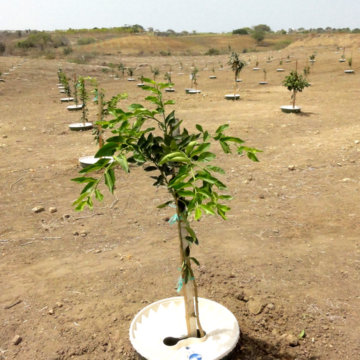- About
- Topics
- Picks
- Audio
- Story
- In-Depth
- Opinion
- News
- Donate
- Signup for our newsletterOur Editors' Best Picks.Send
Read, Debate: Engage.
| located: | Nigeria, South Africa, Sudan, Somalia, Central African Republic |
|---|---|
| editor: | Bob Koigi |
With key events that defined Africa in 2018 having impacted the world, the dynamics of the continent in 2019 are set to take center stage in global geopolitics as elections, conflicts, migration, terrorism, youth and integration make or break Africa.
Numerous African countries go to elections this year, including the continent’s two largest economies, South Africa and Nigeria. And while the circumstances in each country are different, the outcomes will redefine regional politics and stability.
In Nigeria, runaway unemployment among the youth who form the bulk of the population, the conflict between cattle drivers and farmers in Central Nigeria and Boko Haram that continues to grow its influence will feature prominently irrespective of who takes office. In South Africa, the controversial land reforms and a weakening economy will take centre stage at the polls. And while surveys have indicated that South Africa’s oldest party, the ANC, will carry the day, increased dissatisfaction among a black majority on equitable distribution of resources is set to redefine the rainbow nation’s politics post polls.
DR Congo, Sudan, Somalia and Central African Republic have made global headlines as years of conflicts sink these countries into more anarchy while creating the world’s largest humanitarian crises. In South Sudan and DRC for example, up to 10 million people have been displaced by these conflicts. And as DR Congo looks at the stable transition of power and South Sudan bets on a recently signed accord, 2019 will be crucial in determining the stability and fate of millions who have known no peace.
The growing threat of extremist groups and the proliferation of new ones like Mozambique’s Ansar al-Sunna, which have bolstered their numbers from especially young, unemployed and disenfranchised youth, remains one of the biggest challenges for the continent. This, as many governments in the continent remain unprepared to deal with these guerrilla forces. The war on terror in the continent will be won by strengthening continental security forces and information sharing.
Extreme weather continues to take a toll on humanity with rising sea levels and unprecedented droughts now a major contributor to growing poverty, displacement and migration. 1.3 million people in Somalia, Burundi, Madagascar and Ethiopia have been displaced by drought according to the Internal Displacement Monitoring Centre exceeding earlier estimates. By 2018, it was estimated that up to 100 million Africans were staring at poverty as the effects of climate change persisted. The trend is predicted to continue through to 2019 and experts posit that urgent and radical measures now need to be instituted to limit climate warming to 1.5° C.
Internet shutdowns continue to be applied by regimes keen on taming dissenting voices. From Cameroon, Sudan and DR Congo where governments continue to suppress freedom of speech at a time when social media has become formidable in information sharing, 2019 will see even more shutdowns as administrations fight to control what the public consumes. But as was the case in countries like Cameroon in 2018, an innovative young population continues to come up with new ways to counter these shutdowns.
Africa, however, continues to make major inroads in matters of integration through the Single African Air Transport Market and the African Continental Free Trade Area that were signed last year and whose implementation is now set to allow free movement of its people while opening up the continent to trade.
Africa is banking on its youthful population for landmark innovations that are providing homegrown solutions to some of the most pressing problems from agriculture, education and health.
Photo: African Afforestation Association e. V.
